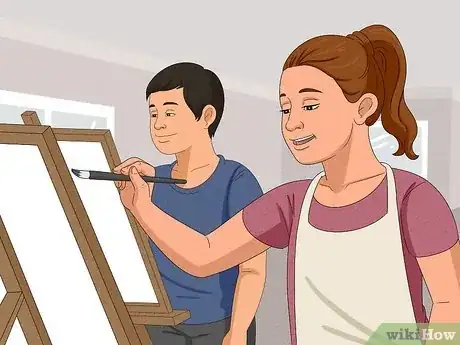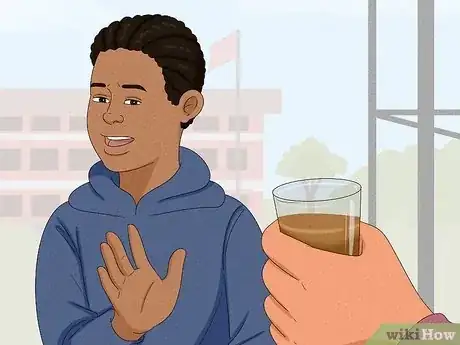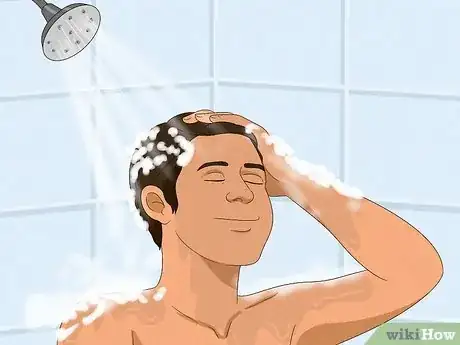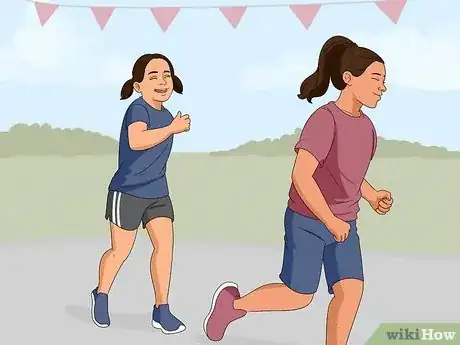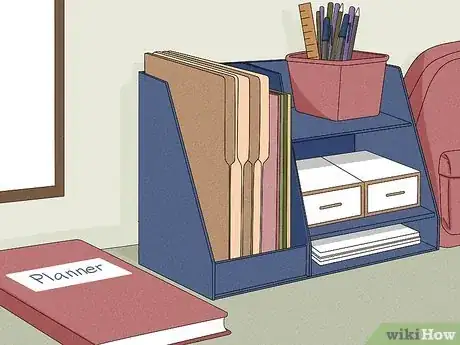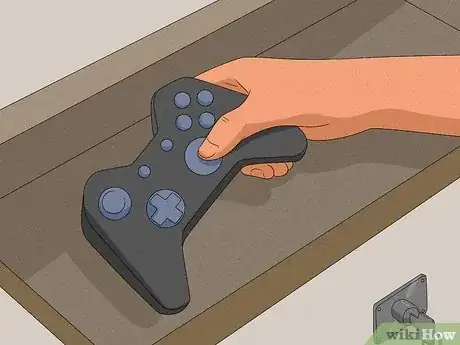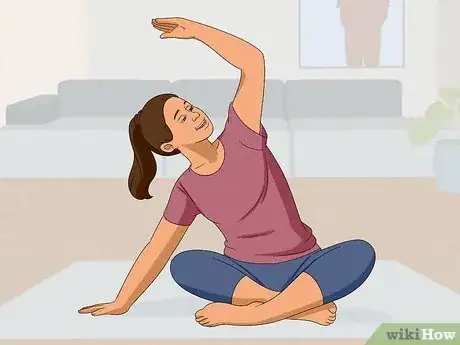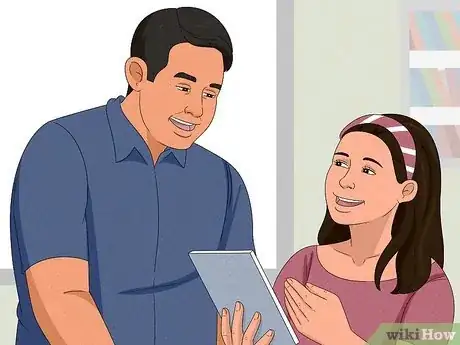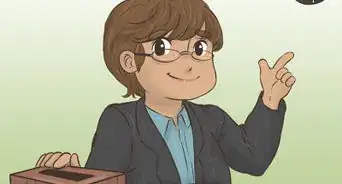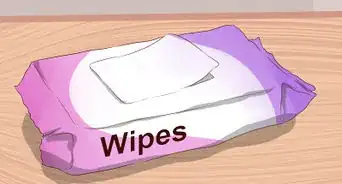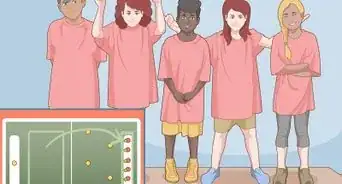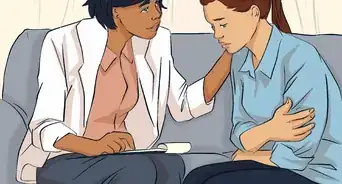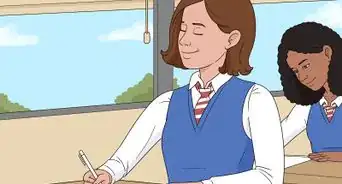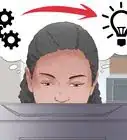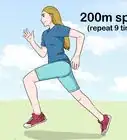This article was co-authored by Katie Styzek. Katie Styzek is a Professional School Counselor for Chicago Public Schools. Katie earned a BS in Elementary Education with a Concentration in Mathematics from the University of Illinois at Urbana-Champaign. She served as a middle school mathematics, science, and social studies teacher for three years prior to becoming a counselor. She holds a Master of Education (M.Ed.) in School Counseling from DePaul University and an MA in Educational Leadership from Northeastern Illinois University. Katie holds an Illinois School Counselor Endorsement License (Type 73 Service Personnel), an Illinois Principal License (formerly Type 75), and an Illinois Elementary Education Teaching License (Type 03, K – 9). She is also Nationally Board Certified in School Counseling from the National Board for Professional Teaching Standards.
There are 10 references cited in this article, which can be found at the bottom of the page.
This article has been viewed 4,281 times.
Elementary school is pretty fun because you can actually learn while doing fun activities such as projects and art! You also make a lot of cool friends during elementary school, which can make the experience great! Here are some ways on how to make your childhood years at elementary school (called primary school in the UK and Australia) the best.
Steps
Being Yourself
-
1Keep good hygiene. This is an important step, and even if you hate doing this, you still have to do it. If at ages 8-12 you go through puberty, you will smell more. Practicing this now is good for your well-being and health. Kids will be more likely to make friends with others with good hygiene. [1]
- For now, bathe daily or every other day.
- Wash your hair every other day or every 2 days. Washing it every day is unnecessary, because your hair will feel dry. Every other day or every 2 days is a good balance between too dry and too oily hair.
- Brush your teeth at least twice a day. This prevents painful cavities, and it reduces a need to go to the dentist. Brushing your teeth also minimizes bad breath, which is not something you want others to smell!
- Wash your face every day to prevent infections and oil build-up. This is especially important during puberty, when your face produces more oil. The oil on your face causes acne (pimples, blackheads, whiteheads).
- Comb your hair every morning to make sure your hair isn't messy or frizzy. You don't want to go to school with bed hair (unless it's Crazy Hair Day at your school)!
- Wash your hands every time you go to the bathroom and before every meal. You touch a lot of surfaces at school (doorknobs, desks, school supplies, dirty clothing, etc.). All of these contain a lot of bacteria and viruses. Wash your hands after you go to the bathroom to avoid spreading germs onto your body, and wash your hands before meals to avoid spreading germs onto your food.
-
2Join clubs at your school. Clubs let you explore your interests, and you can meet other kids with the same hobbies as you.
- Elementary/primary schools have a variety of clubs, like chess, soccer, robotics, art, and math clubs. Check to see if there is a club you are interested in. If there isn't, you can request for the principal or head of your school to make one!
- You can join as many clubs as you want. You can join two, three, or even four clubs if you have the time and energy. Don't join too many though, because you might be very stressed out with too many clubs to tackle.
Advertisement -
3Be confident. Being confident feels amazing, and it makes you unafraid of failure. [2] Don't worry on what other kids will say! In the end, their opinions won't matter. It is you in the end that makes your own decisions for the future. You decide what color of pencil you want to use, or what friends you want to make.
- Being confident gives you the courage to try new things and to stand up for yourself.
- Don't listen to anyone who says you're stupid, ugly, fat, weird, or a failure. Those people are mean, and you shouldn't listen to mean people.
- People can be mean for many reasons. Some kids just want attention. Others might feel terrible about themselves, and bully others to make themselves feel better. They might say that someone is fat to hide their own feelings of being fat (insecurities). Many bullies copy people around them, and bully others because their parents, relatives, or friends do so.
-
4Avoid bad peer pressure. Peer pressure is when your friends or people around you pressure you to do something. This can be good or bad. Good peer pressure might mean that your friends pressure you to keep your grades good, or they might push you to make the football team. Bad peer pressure might mean that people want you to bully others, vandalize buildings, or do other bad things. [3]
- Tell the people, "No, I'm not going to do that." firmly and confidently as a first step.
- Ignore these people. If it gets serious, report the people to a parent, relative, teacher, or another trusted adult.
-
5Ask for help when you need it. Asking for help is very important! Asking for help can reassure you and your feelings. If you don't ask for help, more unanswered questions will build up, and your grades will drop. This will make you very worried and anxious all the time, which isn't good for your body.
- Your teachers, good friends, parents, and relatives are all here to help you! Good teachers, friends, parents, and relatives won't judge you for whatever questions you ask. Don't be ashamed or afraid to ask.
- If you have a question at school, raise your hand. Wait patiently for the teacher to answer and try not to talk out of turn. When the teacher calls on you, say, "(person's name), I have a question." Then, say what you need help with. Say something like, "Ms. Smith, I'm not sure how to do this multiplication problem. Could you help me?" or "Sam, I don't understand this question. Adding fractions is confusing to me. Can you help me?"
-
6Deal with puberty. Younger kids usually don't have puberty yet, but for the older group of elementary/primary school children, they will need to deal with puberty. Puberty is when your body grows and matures into an adult body. This happens at the ages 8-15 (around grades/levels 4-10). [4] [5]
- For all genders, you may get more body odor and acne. This is annoying at times, since others may bully you for your pimples or smell. The classmates in your class might be immature and think that puberty is "disgusting" or "weird". It is totally normal to have puberty in elementary/primary school. Don't listen to those immature classmates, and tell a teacher if they continue to bully you. To combat body odor, start showering or bathing daily. Wash your face every day to prevent too much acne. You should wash your hair every other day also, since more oil will be produced on your scalp.
- For females, you start growing body hair on your armpits, private parts, and legs. Next, your breasts may start to grow, and your old undershirts won't fit anymore. Then, usually at the ages 8-13, you'll have periods when your uterus sheds tissue and blood every month for 3-7 days. After a few years, your breasts might be large enough for cup bras, your hips will widen, and you have reached your adult height. This usually happens at the ages 14-18.
- You'll need to ask a female caretaker or relative to buy you a training bra if your breasts become uncomfortable in small undershirts.
- Some kids start their periods early in elementary/primary school, at the ages 8-10. This is completely normal, since every female's body is different. Check out this article to deal with your period in elementary/primary school.
- For males, you usually start growing body hair on your armpits, private parts, legs, and chest. Next, your private parts will start to grow in size. When this happens, you might frequently get erections (when the penis gets engorged) or wet dreams because of your hormones. You get both of these from thinking of romantic thoughts, or they could be totally random. This usually happens at the ages 9-15. Then, your Adam's apple grows (which will deepen your voice), and you might grow some facial hair. After a few years, your muscles will have grown larger, and you have reached your adult height.
- Some kids start puberty in elementary/primary school. This is completely normal, since every male's body is different. Check out this article and this article to deal with male puberty.
Making Friends
-
1Get to know the classmates in your class. Chances are that you'll know at least a few familiar faces in your classroom. If you haven't switched schools, you'll see that there's some kids you've seen before, and some new ones. If you have switched schools, you might see a lot of new kids. It may seem scary to talk to someone you don't know, but getting to know one another will make it easier to make friends.
- Before school starts, during break times, lunch, or after school, come up to a kid and say something like, "Hi, I'm Edward. What do you like doing on the weekends?", "Hello! My name's Izzy. What's your name?", or "Hello. I'm Caroline. Do you like drawing?"
- If they are interested in the same things as you, you can continue the conversation until you have to go or if school starts.
- If they are not interested in the conversation or don't share common interests with you, end the conversation by saying, "Thanks! It was nice knowing you, Isiah. Goodbye!", "Nice! I'll have to leave since I have science class next. Bye Nicolas!", or "Sorry Kate, but I have things to do. I'll have to leave now. Bye!" after the person has stopped talking.
-
2Talk to people in clubs or extracurriculars to make friends. These people have at least one thing in common with you- the club that you joined.
- They are probably interested in the club like you, so talk to them about your interests and hobbies.
-
3Go to school events. School events have a bigger variety of people than just the people in your class. Events like field trips, field days, festivals, assemblies, school plays, or talent shows often have the whole grade level of students (e.g., the whole 3rd grade, the whole 5th grade) or even the whole school attending them.
- If you want to make friends that aren't in your class or grade, attend them.
- You may need permission by your caretakers/guardians to go to certain events, like field trips. Ask them first, then go there. If they don't allow you, it's ok! There are many more places to make friends, like school and clubs.
Getting Good Grades
-
1Focus on your assignments to get good grades. You come to school for education, not to make friends, play video games, or do nothing. You should focus on your grades first, then worry about friendships and hobbies.
- Turn assignments in on time. Don't wait until the last day, hour, or minute to do something. This will make you very stressed, since you will have a lot of assignments overdue. You can even get a head start on assignments by doing classwork and homework in class.
- Ask for help when you need it. As explained in the previous section, asking for help is important in excelling in elementary school.
-
2Take notes during class. Taking notes is important when you can't easily memorize all of the information you have learned in class. When you go to middle school, high school, college, or a higher level of education, you will need to take good notes to understand the subjects being taught.
- Many kids who take notes copy the whole textbook down. They don't summarize points or make their writing concise enough. Concise means writing a short amount that can summarize the information well. For example, you can just write, "The stomach digests food." instead of "The stomach, an organ in the digestive system, digests food using acids and its muscles." if you have already written how the stomach digests food in previous notes.
- Write neatly. Don't rush through your notes. If you need them to study, you won't be able to read your handwriting! You won't understand what important notes you wrote, leading to bad grades on assignments. Write neatly and take your time. If your hand hurts, rest for a few minutes before writing again.
-
3Balance your grades and your friendships. There needs to be a balance between the two. On one hand, you don't need to constantly worry about your grades if you're getting a C+ (around 77%-79%) or above in tests. On the other hand, you shouldn't continue to hang out with friends and not care about your grades if your grades are worsening.
- If you get a C (60%-70%) when you usually get As or Bs, that's ok! Continue to ask for help if you need it, and have a support system made up of friends, teachers, and caretakers.
- If your caretakers expect you to get perfect scores (As which equals 90%-100% in percentage scores) all the time, this can impact your confidence. You may be worried about getting a B or below, even if your grades are excellent. Don't let this get to you and know that it is normal to make mistakes. No one's a robot, and even robots have errors once in a while.
-
4Stay organized. You don't want to be unorganized, since you won't know when and how to do assignments. When the teacher talks about an assignment, write the due date down and how to do it in a notebook.
- If you're an older elementary school student (ages 9-12), you may want to keep a planner. Planners are essentially calendars that you can fill in with reminders, like for assignments. You can buy a planner in most stores that sell school supplies, like Target, Walmart, and Amazon.
- If you're younger, it's optional to keep a planner since you won't have that many assignments to keep track of.
Staying Healthy During School
-
1Take away all distractions when you do homework. Math and reading homework will need you to focus on the details, whereas other homework, such as writing, will need you to think creatively. If you have distractions, you won't be able to focus on homework. You'll make a lot of silly mistakes if you don't concentrate on your work. [6]
- If you really want to play with a new action figure or toy car, put it away in a cabinet, drawer, or your toy chest. Close and lock it to prevent you from playing with it. If you want to play with a doll or fidget with a bracelet, put it in a drawer or cabinet.
- If you like browsing with a tablet to watch videos/play games, but need it to do homework, ask your parents to install apps that track which websites you visit. These website trackers can block websites and set time limits.
-
2Exercise to reduce stress. Stress is not a good feeling, and it makes you feel tired and unhappy. Exercising helps boost your mood and strengthens your muscles.
- Try going on a bike ride after school or during the weekends.
- If the weather's bad, exercise indoors by dancing and doing yoga.
- Run around your backyard or play with your pets.
- You could ask friends to exercise with you by running around and playing sports.
-
3Have a good night's rest. Kids need extra sleep to stay healthy. You'll need a few more hours of sleep than tweens, teens, and adults to stay energized and healthy. If you're not sleeping enough, you will feel tired and groggy. If you feel tired and groggy, you can't participate in school as well. You'll stay less concentrated and not feel like participating. This will affect your grades at school. [7]
- Kids aged 5-6 will need 10-13 hours of sleep.
- Kids aged 7-8 will need 10-12 hours of sleep.
- Kids aged 9-10 will need 9-12 hours of sleep.
- Kids aged 10-11 will need around 9-11 hours of sleep.
- Tweens aged 11-12 will need 9-10 hours of sleep.
-
4Ask a trusted adult for help if school gets stressful. Being a kid can be stressful- with the amount of bullying, peer pressure, worrying about grades, and extracurriculars, it can be tough. If you feel stressed or worried, you need to tell a trusted adult.
- You can talk to your parents, a teacher, a trusted friend, or a counselor at your school for help.
- If your parents pressure you to get perfect grades, you may feel overwhelmed. Many parents do this because their own parents (your grandparents) did the same thing. They might be perfectionists and get upset when they didn't get good grades ad a kid. You can talk with your parents that you are stressed, and you may need to cut out some activities or clubs. If they don't listen, talk to a counselor or teacher at your school.
- There are many symptoms, or signs, of stress. Some kids may have physical symptoms, like frequent headaches or stomachaches. Kids might have sweaty palms or an increased heartrate when stressed. Emotional symptoms can make you less concentrated at school or constantly worried. You might be scared of little things or overreact to something you've experienced before. [8]
Warnings
- Do not do anything against the school rules, such as vandalize the school or bully other classmates. You'll be less likely to make friends this way, and you will get in trouble.⧼thumbs_response⧽
- If your parents are abusing you, you need to contact a trusted adult at your school and the police. In the U.S., Canada, and Mexico, you dial 911 for the police to come. In the UK, dial 999. In Europe, you dial 112. In Japan, China, and Taiwan, you dial 110 for the police. In Taiwan, there is an emergency number for domestic and child abuse- 113, so you can dial that instead of the police. Search online for emergency numbers in your country. [9] [10]⧼thumbs_response⧽
References
- ↑ https://www.brainpop.com/health/personalhealth/personalhygiene/
- ↑ https://kidshealth.org/en/kids/self-esteem.html
- ↑ https://kidshealth.org/en/kids/peer-pressure.html
- ↑ https://kidshealth.org/en/kids/puberty.html
- ↑ https://www.brainpop.com/health/geneticsgrowthanddevelopment/puberty/
- ↑ https://kidshealth.org/en/kids/organize-focus.html
- ↑ https://kidshealth.org/en/parents/sleep.html
- ↑ https://www.bgca.org/news-stories/2020/June/Warning-Signs-Kids-and-Teens-are-Stressed-and-How-to-Help
- ↑ https://www.japan-guide.com/e/e2229.html

